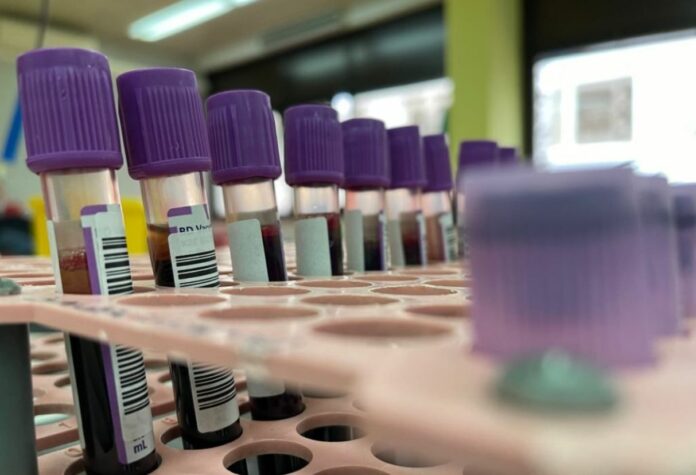Most Alzheimer’s patients are diagnosed today only after they show well-known signs of the disease, like memory loss. At this stage, the most effective treatments just slow the development of symptoms.
But study has shown that the seeds of Alzheimer’s are planted years or even decades before the cognitive problems that make it possible to diagnose the disease. These seeds are amyloid beta proteins, which cluster and misfold to form oligomers, which are tiny aggregates. These “toxic” oligomers of amyloid beta are considered to contribute to the progression of Alzheimer’s disease over time via a mechanism that scientists are still attempting to comprehend.
A group of scientists at the University of Washington have created a lab test that can count the number of amyloid beta oligomers present in blood samples. As reported in a paper published in the Proceedings of the National Academy of Sciences the week of December 5, their test, known by the acronym SOBA, could detect oligomers in the blood of patients with Alzheimer’s disease, but not in the majority of members of a control group who exhibited no signs of cognitive impairment at the time blood samples were collected.
But 11 people in the control group had oligomers in their blood, which was found by SOBA. 10 of these people had follow-up examination data, and all had minor cognitive impairment or brain pathology that was compatible with Alzheimer’s disease years later. SOBA found harmful oligomers before symptoms in these 10 people.
“What clinicians and researchers have wanted is a reliable diagnostic test for Alzheimer’s disease — and not just an assay that confirms a diagnosis of Alzheimer’s, but one that can also detect signs of the disease before cognitive impairment happens. That’s important for individuals’ health and for all the research into how toxic oligomers of amyloid beta go on and cause the damage that they do,” adds senior author Valerie Daggett. “What we show here is that SOBA may be the basis of such a test.”
SOBA, which stands for “soluble oligomer binding assay,” uses a unique property of the toxic oligomers. Amyloid beta misfolded proteins create an alpha sheet as they start to group together into oligomers. Alpha sheets aren’t usually found in nature, and Daggett’s team’s previous research showed that alpha sheets tend to stick to each other. A synthetic alpha sheet that her team created that can attach to oligomers in blood or cerebrospinal fluid samples is the foundation of SOBA. Thereafter, conventional techniques are used to verify that the oligomers bound to the test surface are really amyloid beta proteins.
The team tested SOBA on blood samples from 310 people who had already helped with Alzheimer’s research by giving their blood samples and some of their medical records. At the time the blood samples were taken, there were no signs of cognitive impairment, mild cognitive impairment, Alzheimer’s disease, or another form of dementia in the people who gave the samples.
SOBA found that people with mild cognitive impairment and moderate to severe Alzheimer’s had oligomers in their blood. Autopsy confirmed the diagnosis of Alzheimer’s disease in 53 of the study’s participants, and toxic oligomers were found in the blood samples of 52 of them, obtained years before their deaths.
Records indicate that SOBA also found oligomers in control group participants who subsequently had modest cognitive impairment. Blood samples from other control group members who didn’t suffer any impairment lacked toxic oligomers.
To transform SOBA into an oligomer diagnostic test, Daggett’s team is collaborating with researchers at AltPep, a UW spinout firm. In the study, the team also showed that SOBA could be easily changed to find toxic oligomers of another type of protein linked to Parkinson’s disease and Lewy body dementia.
“We are finding that many human diseases are associated with the accumulation of toxic oligomers that form these alpha sheet structures,” adds Daggett. “Not just Alzheimer’s, but also Parkinson’s, type 2 diabetes and more. SOBA is picking up that unique alpha sheet structure, so we hope that this method can help in diagnosing and studying many other ‘protein misfolding’ diseases.”
Daggett thinks the test has promise.
“We believe that SOBA could aid in identifying individuals at risk or incubating the disease, as well as serve as a readout of therapeutic efficacy to aid in development of early treatments for Alzheimer’s disease,” she adds.
Source: 10.1073/pnas.2213157119
Image Credit: Getty
